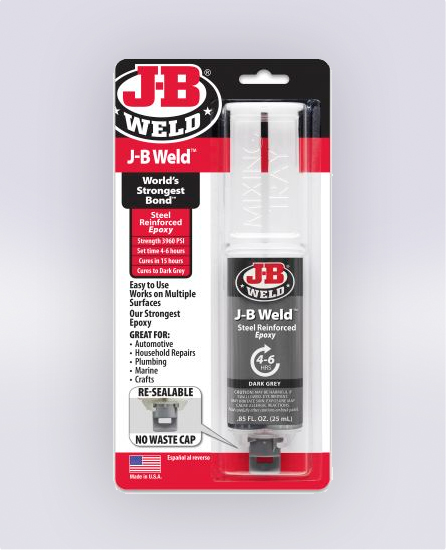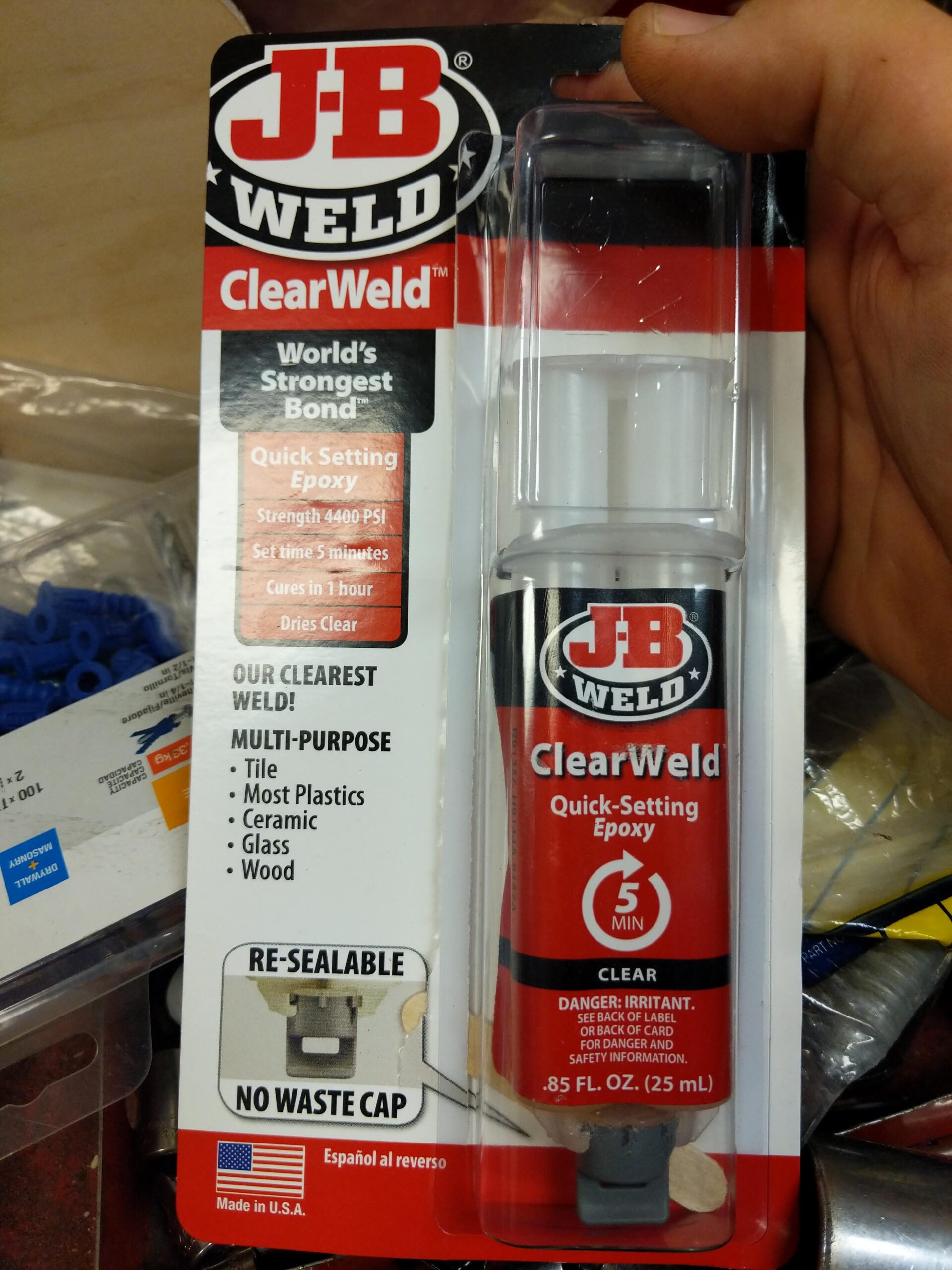J-B Weld is not food safe, as it is not intended for use on items that will come into contact with food. It is important to ensure that any materials used in food preparation or storage are explicitly labeled as food safe.
Using non-food safe products in contact with food can pose health risks. The safety of materials used in food-related applications is crucial for protecting consumers from potential harm. Understanding the suitability of products for specific uses is essential for maintaining food safety standards.
When selecting adhesives or sealants for projects involving food items, it is advisable to opt for products explicitly designated as food safe to avoid any health hazards.
Introduction To Jb Weld
JB Weld is a type of epoxy that is known for its strong bonding abilities. It is commonly used for various automotive, plumbing, and household repairs. The origins of JB Weld can be traced back to the 1960s when it was first developed for industrial use. Since then, it has become a popular choice among DIY enthusiasts and professionals alike due to its versatility and durability.
JB Weld is made up of two components – a resin and a hardener. Once these two components are mixed together, they create a strong and long-lasting bond. JB Weld is also known for its high heat resistance and chemical resistance, making it suitable for use in a wide range of applications. It is important to note that while JB Weld is generally considered safe for incidental contact with food, it is not recommended for direct food contact.
| Components | Characteristics |
|---|---|
| Resin | Provides the adhesive properties of JB Weld |
| Hardener | Activates the resin and helps create a strong bond |
| High heat resistance | Makes it suitable for use in high temperature applications |
| Chemical resistance | Makes it resistant to a wide range of chemicals and solvents |
Food Safety Basics
When it comes to food safety, it’s crucial to ensure that any materials used are food-grade and safe for consumption. Regulatory standards outline the criteria for determining whether a product is food-safe. When assessing the safety of a product like J-B Weld, it’s essential to consider whether it meets these criteria. Additionally, it’s important to verify if the product complies with specific regulations set by authorities such as the FDA.
Analyzing Jb Weld’s Composition
JB Weld is a two-part epoxy adhesive made up of resin and hardener. The key ingredients in JB Weld are epoxy and steel. When cured, it becomes an inert substance, making it food safe. However, it is essential to follow the manufacturer’s recommendations and allow the epoxy to cure completely before exposing it to food or liquids. It is important to note that inhaling the fumes during the curing process may pose potential hazards. Therefore, it is advisable to use JB Weld in a well-ventilated area and to avoid direct contact with food or beverages. Overall, while JB Weld is food safe once cured, it is crucial to handle it with care during the application and curing process.
Jb Weld And Direct Food Contact
JB Weld is a popular epoxy adhesive that is known for its strength and durability. However, when it comes to direct food contact, there are mixed opinions on its safety.
The manufacturer, JB Weld Company, states that their products are not intended for direct food contact and should not be used on surfaces that come into contact with food. They recommend using their food-safe epoxy, JB Weld WoodWeld, for projects involving food preparation surfaces.
Expert opinions vary on the safety of using regular JB Weld on surfaces that come into contact with food. Some experts argue that once the epoxy is fully cured, it becomes inert and safe for incidental food contact. However, others caution against using it on surfaces that directly touch food, as the epoxy may contain chemicals that could leach into the food.
Ultimately, if you are concerned about the safety of JB Weld in direct food contact applications, it is best to follow the manufacturer’s recommendations and opt for their food-safe epoxy or explore other food-safe adhesive options available in the market.
Case Studies And Experiments
When it comes to food safety, it’s essential to consider real-world applications and laboratory findings. Case studies and experiments have shown that J-B Weld is not food safe. In real-world applications, it has been observed that J-B Weld can leach harmful chemicals into food and beverages. Laboratory findings have also confirmed the presence of toxic substances when J-B Weld comes into contact with food. Therefore, it’s crucial to avoid using J-B Weld in any food-related scenarios to ensure the safety of consumers and food products.

Alternatives To Jb Weld For Food-related Uses
Explore food-safe alternatives to JB Weld, such as FDA-approved food-grade epoxy adhesives, silicone sealants, and food-safe putties. Prioritize safety in food-related repairs to avoid any potential health risks.
| Food-Safe Adhesives | Natural Solutions |
| J-B Weld isn’t certified for food use, but food-grade silicone or epoxy can be safe alternatives. | Beeswax, cornstarch paste, or potato starch glue are eco-friendly options. |
Best Practices When Using Adhesives Around Food
For those working with adhesives around food, it’s crucial to ensure the product is food safe. When it comes to JB Weld, it is not recommended for use in direct contact with food due to its chemical composition. Always opt for adhesives specifically labeled as food safe to maintain food hygiene standards.
| Best Practices When Using Adhesives Around Food |
| Preparation and Application |
| Safety Precautions: |
| 1. Ensure surfaces are clean and dry before adhesive application. |
| 2. Read and follow the manufacturer’s instructions carefully. |
| 3. Allow sufficient time for the adhesive to cure completely. |
| 4. Avoid direct contact between adhesive and food items. |


Frequently Asked Questions
Can Jb Weld Be Used On Food Surfaces?
No, Jb Weld should not be used on food surfaces. It is not food-safe and can contaminate the food.
Is Jb Weld Toxic?
Jb Weld is not toxic when fully cured. However, it is not food-safe and should not come into contact with food.
Can Jb Weld Be Used For Repairing Kitchen Utensils?
No, Jb Weld should not be used for repairing kitchen utensils as it is not food-safe. It can contaminate the food and cause health issues.
Is Jb Weld Fda Approved?
Jb Weld is not FDA approved for food contact. It is recommended to use FDA approved epoxy for food contact applications.
Conclusion
While JB Weld may be a reliable adhesive for various applications, it is not recommended for use in direct contact with food. The manufacturer does not claim it to be food safe, and there is a risk of potential chemical leaching.
To ensure the safety of your food and health, it is best to use products specifically designed for food-related applications. Always prioritize safety and consider alternative options when it comes to food contact materials.

